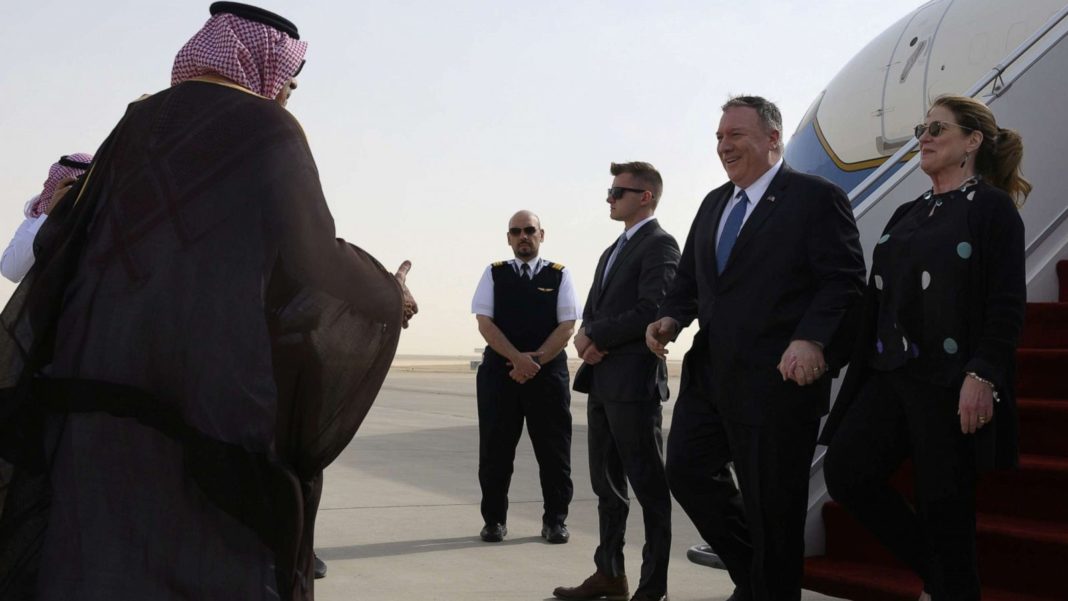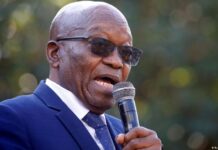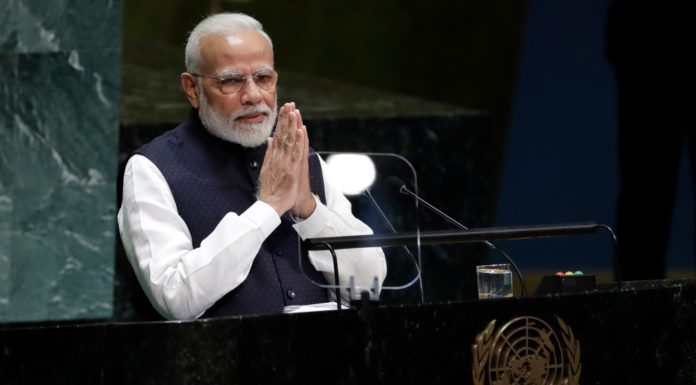In first visit since the killing of General Soleimani, US secretary of state reaffirms security concerns over Iran.
On his second day in Saudi Arabia, US Secretary of State Mike Pompeo visited American troops after discussing security concerns over Iran with Crown Prince Mohammed bin Salman.
Pompeo met with US military commanders at a Saudi airbase where about 2,500 US troops are stationed in response to perceived threats from the Islamic Republic.
The base includes a squadron of US Air Force F-15E fighter jets that fly daily missions over Iraq and Syria and two American Patriot missile batteries prepared to knock down any Iranian attack against the kingdom.
“Pompeo’s visit to Prince Sultan air base and a nearby US Patriot battery highlights the longstanding US-Saudi security relationship and reaffirms America’s determination to stand with Saudi Arabia in the face of Iranian malign behaviour,” the State Department said in a statement.
Pompeo said the American military presence is a form of deterrence “to deliver us to a place where I, as secretary of state, can get the diplomatic outcome that the president is seeking”.
The US began building up its military presence in the kingdom last summer as President Donald Trump and his oil-rich ally Riyadh accused Iran of attacking tankers in the Gulf and Saudi oil installations, incidents that roiled global energy markets last year.
Tehran denies involvement in the attacks and Riyadh has since appeared eager to engage in cautious diplomacy to ease friction.
Tensions in the region further heightened up following the US assassination of Iran’s top military commander Qassem Soleimani as he was visiting Iraq on January 3.
The move triggered Iranian retaliation with missile strikes targeting Iraqi military bases housing US troops.
Balancing act
Prior to his departure to Saudi Arabia, Pompeo said he planned to raise US concerns over the kingdom’s human rights record.
Some Saudi-American citizens have been imprisoned in the kingdom as part of a wider crackdown on perceived critics of the powerful crown prince. They include Badr al-Ibrahim, a writer and physician, and Salah al-Haidar whose mother is prominent women’s rights campaigner Aziza al-Yousef, who faces trial for her activism.
Others are barred from leaving Saudi Arabia such as Walid Fitaihi, a Boston-area physician who was swept up in an anti-corruption campaign launched by Crown Prince Mohammed in late 2017.
“The Saudis share our strategic objectives. They are an important ally and partner,” Pompeo told reporters Thursday.
“At the same time, we continue to make clear our expectations with respect to a broad range of human rights issues.”













![Hotstar Premium Cookies 2019 [*100% Working & Daily Updated*] Hotstar Premium Cookies 2019 [*100% Working & Daily Updated*]](https://tahav.com/wp-content/uploads/2019/11/Hotstar-Premium-Cookies-Free-100x70.jpg)



